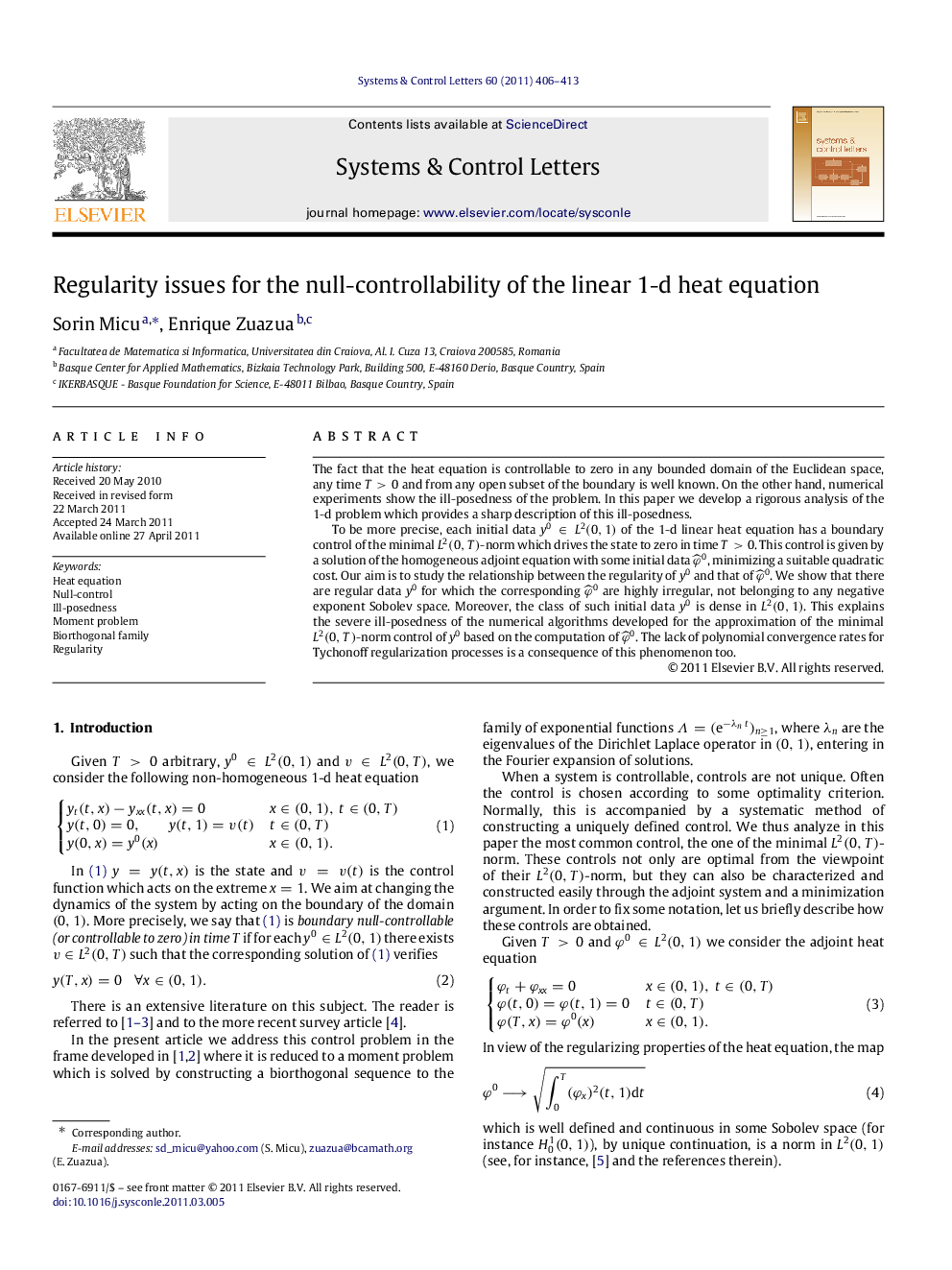| Article ID | Journal | Published Year | Pages | File Type |
|---|---|---|---|---|
| 752451 | Systems & Control Letters | 2011 | 8 Pages |
The fact that the heat equation is controllable to zero in any bounded domain of the Euclidean space, any time T>0T>0 and from any open subset of the boundary is well known. On the other hand, numerical experiments show the ill-posedness of the problem. In this paper we develop a rigorous analysis of the 11-d problem which provides a sharp description of this ill-posedness.To be more precise, each initial data y0∈L2(0,1)y0∈L2(0,1) of the 11-d linear heat equation has a boundary control of the minimal L2(0,T)L2(0,T)-norm which drives the state to zero in time T>0T>0. This control is given by a solution of the homogeneous adjoint equation with some initial data φ̂0, minimizing a suitable quadratic cost. Our aim is to study the relationship between the regularity of y0y0 and that of φ̂0. We show that there are regular data y0y0 for which the corresponding φ̂0 are highly irregular, not belonging to any negative exponent Sobolev space. Moreover, the class of such initial data y0y0 is dense in L2(0,1)L2(0,1). This explains the severe ill-posedness of the numerical algorithms developed for the approximation of the minimal L2(0,T)L2(0,T)-norm control of y0y0 based on the computation of φ̂0. The lack of polynomial convergence rates for Tychonoff regularization processes is a consequence of this phenomenon too.
